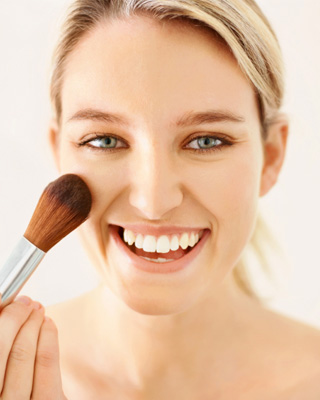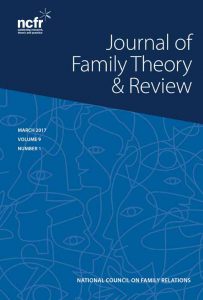The Gender, Race, and Class Dynamics of “Effortless Perfection”
In the two weeks since I wrote about Secret’s “stress sweat” ad campaign, I’ve been thinking a lot about American society’s beauty standards for women. The prevailing model of female beauty (especially for young women, say 16-35 y/o) is best described by a term coined at Duke University: “effortless perfection.” As the Duke researchers explained, their interviewees felt they “had to be not only academically successful, but also successful by all the traditionally female markers — thin, pretty, well-dressed, nice hair, nice nails. And, the real rub is you had to do it with no visible effort” (see the Steering Committee’s report here). Secret reinforces this unrealistic standard through their new line of products. Take, for example, their clinical strength sport stick (which I mentioned briefly in the last post). Thanks to the efforts of feminist activists around the nation, the otherwise all-male realm of sport has opened up, ever so slightly, to women athletes. But this has not altered the heterosexist structures that govern women’s lives. Women are expected to balance it all—work, family, school, love, and now sports—and be at our best, without ever breaking a (literal or figurative) sweat.
The pressure for “effortless perfection” envelops women daily. When it comes to beauty, “effortless perfection” is about looking as lovely as every retouched fashion model, but making it seem as though it comes naturally to you. Like women roll out of bed with “soap opera” curls in their hair, are born with pink blush splotches on their cheeks, and have eyebrows that sculpt themselves. Take this ad for Clairol’s Nice n Easy hair dye. In it, the husband marvels at his wife’s nearly magical ability to maintain her youthful beauty even as life’s ups and downs have left him with grey hair. “I don’t know all her secrets” he tells us, “but I do know that Kate’s more beautiful now than the day I married her.” Kate’s dirty little secret is that she isn’t perfect—that 15 years of marriage, new jobs and homes, and carrying and delivering 2 babies weren’t effortless endeavors for her. And yet she hides her greys to maintain the allure that captivates her husband.
Its directive is simple, but impossible to achieve. “Effortless perfection” is artificiality masquerading as nature. It is the female athlete who glows (not sweats) on the field and the wife whose flaxen hair grows more golden with age. It is, perhaps, best exemplified by the “au natural” makeup trend, easily found in any fashion magazine. Just for fun, I found this guide online. Getting the “natural beauty” look that “guys love” requires 5 multipart steps and more than 10 beauty products/tools: face wash, makeup remover, moisturizer, tinted moisturizer or foundation, concealer, liquid shimmer luminizer (which sounds more like a sci-fi weapon than makeup to me), eyelash curler, mascara, blush, and loose powder. And since all of this is set in a hypercapitalist context, you can’t just buy any old makeup; you’ve got to buy the right stuff or risk exposing the artificiality of one’s perfection—mascara flakes tell the truth about your insufficient lashes and the wrong shade of foundation reveals that your skin is not actually made of porcelain or milk chocolate or caramel.
And this is where things get more complicated. While all women living in our society are subjected to some version of heterosexist beauty standards, only some are able to live up to them. That is, the pressures of “effortless perfection,” problematic though they may be, are themselves a privilege restricted to women of certain class positions. As one reader commented on my Secret post, these products are costly—Secret’s clinical line costs up to 3 times more than a regular stick of deodorant. Natural looking cosmetic products are pricey. Women who are economically disadvantaged cannot afford this beauty ideal and are often stigmatized. Moreover, this ideal is racialized. While product lines are increasingly including more cosmetics for women with darker skin tones, these options are still limited compared to those for lighter skinned women. Additionally, deodorants which claim to be invisible on skin are often only invisible on light skin; when dark skinned women wear it, we see the “effort” in their “perfection.” The ideal of “effortless perfection” emerges from society’s center: white, middle class, heterosexuals. Marginal women are always already excluded, as their bodies have historically been the foil for white, middle class women, the proof of white women’s superiority.
Ultimately, the ideal of “effortless perfection” is bad for all women—it says to us, “As you are, you will never be good enough.” And then it whispers, “But some of you can try.”
Further reading





1099-0860/asset/NCB_logo.gif?v=1&s=40edfd0d901b2daf894ae7a3b2371eabd628edef)

For anyone interested, here’s the url for my last post about Secret’s deodorant line, which I should have linked to in this intro: http://thesocietypages.org/sociologylens/2013/01/17/stress-sweat-and-stress-about-sweat/
This is a FANTASTIC post! I don’t think the “effortless perfection” ideal ever hit home for me so much as right after I had my son. Where is the movement to show off our stretchmarks with pride? I carried a person inside of me, it wasn’t effortless, my belly will never be “perfect” again, and that’s the way it should be!
This is an awesome piece. It touches upon so many layers; I love the ubiquity of the idea because so many people can relate, yet it is nuanced enough that each individual’s interpretation is their own.
Moreover, it also reminds me of Brene Brown’s research at the University of Houston on shame/vulnerability/guilt/fear and their relation to courage/connection/trust/intimacy. Brene has kind of taken her work to the mainstream audience lately (since her TEDtalks exploded and she’s been on the NYTimes bestsellers and Oprah- which is awesome btw); but I remember her saying the exact same thing in an interview. Paraphrasing, “What brings women to their knees are the messages and expectations to: Do it all, do it perfectly, and make it look effortless”.
Subsequently, Brene also mentioned that the analogous suffocating expectation for men is: Do not be precieved as weak. Ever. Period.
Anyways, thanks for the read. I will look into your recommended further readings. Cheers!